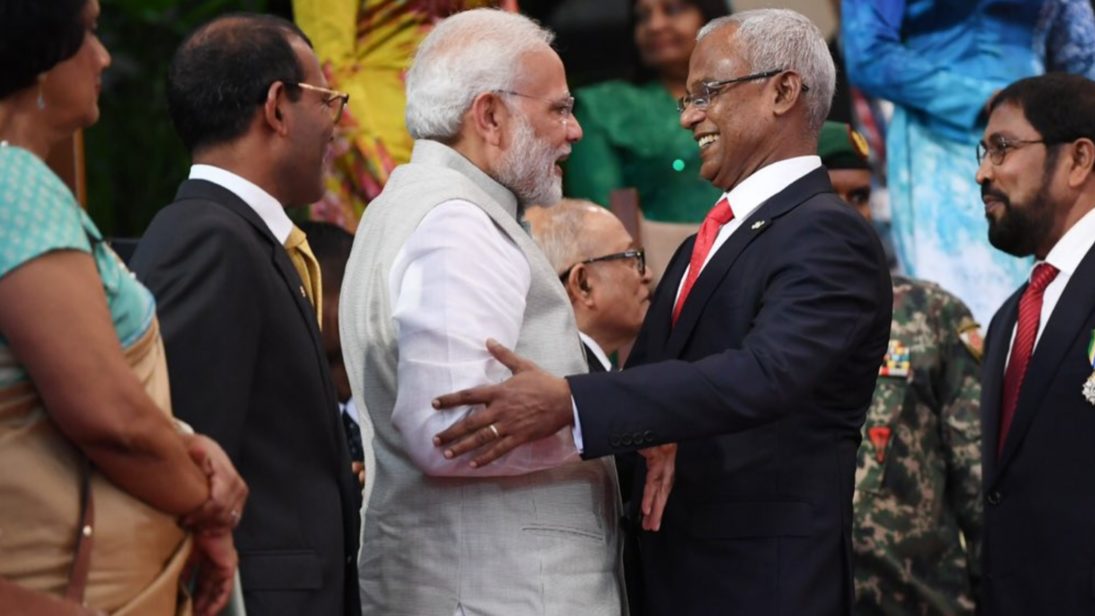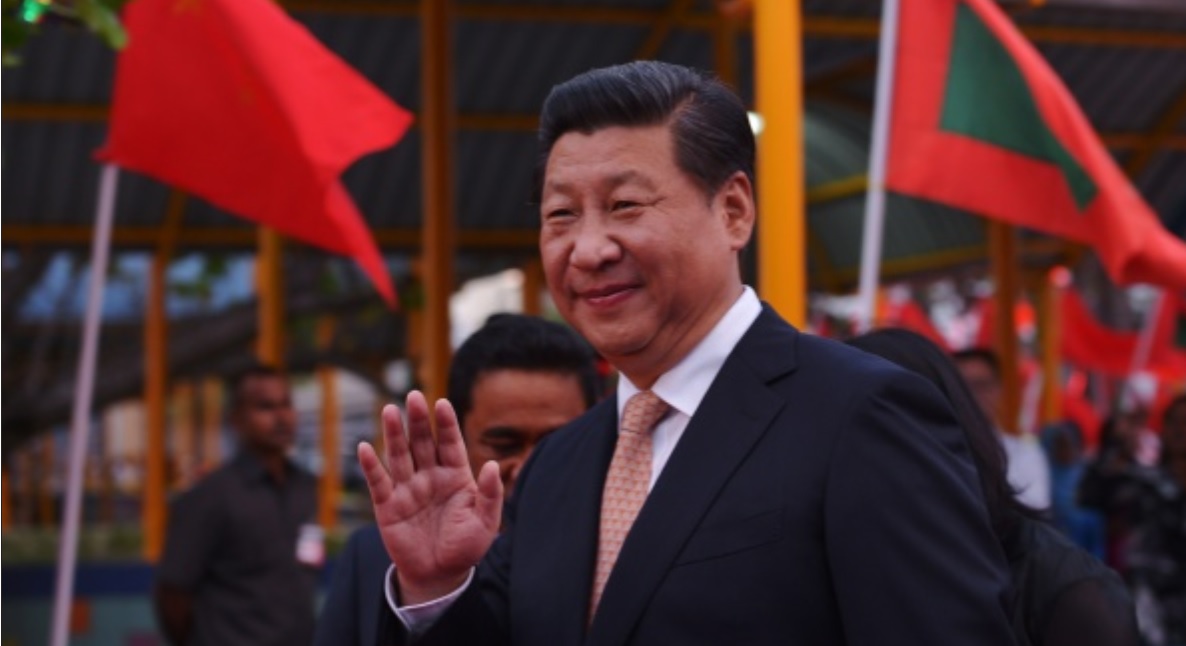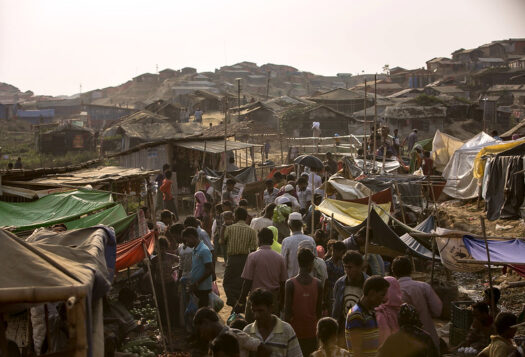
India closely watched the recent presidential elections in the Maldives and with a new government now in place in Malé, New Delhi senses an opportunity to undo the damage that their bilateral relations endured under the previous Maldivian government. India’s ties with the Maldives nosedived during the preceding Yameen Abdul Gayoom administration at the expense of increasing Chinese influence in the island country. Under the Yameen government, the Maldives, which was perceived to be under India’s sphere of influence, gradually slipped into China’s orbit, promoting economic and political ties with Beijing while largely ignoring New Delhi. The two countries’ ties frayed further when earlier this year, India raised concerns over the Yameen government arresting the chief justice for issuing an order to release opposition leaders, and declaring a state of emergency in the Maldives. The Maldives responded by refusing to renew the visas of Indian helicopter pilots based in the island nation and India was asked to remove the two helicopters it had given as a goodwill gesture. The biggest setback came when Indians working in the Maldives for several years were denied visa renewal and workers complained that Maldivian businesses were turning Indians away.
India’s ties with the Maldives nosedived during the preceding Yameen Abdul Gayoom administration at the expense of increasing Chinese influence in the island country. […] However, with Indian Prime Minister Narendra Modi attending Ibrahim Mohamed Solih’s swearing in last month as the seventh President of the Maldives, the two countries’ relations seem poised to get back on track.
However, with Indian Prime Minister Narendra Modi attending Ibrahim Mohamed Solih’s swearing in last month as the seventh President of the Maldives, the two countries’ relations seem poised to get back on track. Among other positive signals, Maldivian Defence Minister Mariya Ahmed Didi reassured India that the Maldives will follow an “India First” policy while former Maldivian President Maumoon Abdul Gayoom acknowledged that India played a “positive role” in the restoration of democracy in the country and that the new government in Malé would be “sensitive” to New Delhi’s concerns.
The China Problem
Being a neighbor with a sizable Indian diaspora and cultural-linguistic similarities, the Maldives has been historically close to India. However, trouble began in February 2012 when former Maldivian President Mohamed Nasheed, considered to be pro-India, was forced to resign due to mass protests for domestic reasons. And, much to India’s dismay, the gradual loss of its strategic influence in the Maldives happened simultaneously with growing Chinese influence. In late 2012, an agreement signed by Indian company GMR was abruptly cancelled by the Maldives and subsequently given to a Chinese company in 2014. During this time, Chinese President Xi Jinping visited the Maldives, the first time a Chinese president had ever done so, courting the country with messages of economic development. Until 2010, China did not even maintain an embassy in the Maldives. But over the last seven years, China has not only established diplomatic presence in the Maldives but has also assisted in major infrastructure projects such as the Malé international airport upgrade (estimated to be worth worth USD$830 million) and building the China-Maldives Friendship bridge.

One of the biggest losses for India under the Yameen government has been Malé’s early embrace of China’s Belt and Road Initiative (BRI). The Maldives’ willingness to join BRI would turn it into an important pit-stop connecting China with countries in Asia and Africa. In addition, China is pushing rapidly into the Indian Ocean and its BRI could adopt a military posture in the region in future. These developments are of huge concern to India, because these Chinese moves will likely reduce operational space for India in the Indian Ocean Region (IOR) and reduce its traditional influence with smaller regional states – a process that seems to have already begun. More critically, while the Chinese People’s Liberation Army-Navy (PLAN) has already started evincing belligerent postures in the eastern Indian Ocean, their presence in the southern Indian Ocean, potentially through a port China has leased for 50 years in the Maldives, could strategically position them at the heart of important shipping lanes globally. Besides buying China strategic leverage in the IOR, PLAN’s presence in the southern Indian Ocean could eat into the Indian Navy’s role as a net-security provider.
The Maldives’ increasing debt-dependence on China not only erodes the space for India’s own developmental assistance in the Maldives but gradually pushes an erstwhile favorable Indian Ocean node towards China.
Another concern for India is the unprecedented Maldivian foreign debt to China–the Maldivian opposition claims that about 70 percent of the country’s total debt is owed to China and around 10 percent of the yearly Maldivian budget (USD$92 million) goes to China as payments for this debt. This situation has sparked fears in India and around the world that the Maldives too may become ensnared in the “debt-for-leverage” and “land grab” schemes followed by China in many other countries. The Maldives’ increasing debt-dependence on China not only erodes the space for India’s own developmental assistance in the Maldives but gradually pushes an erstwhile favorable Indian Ocean node towards China.
A Chance at Hand
In the short time since the new government took over in the Maldives, there has been a flurry of diplomatic activity between New Delhi and Male, aimed at resetting ties. The Maldivian foreign minister Abdulla Shahid visited New Delhi recently, reiterating his government’s “India First” policy by terming India the Maldives’ “best friend,” while India is reportedly considering offering the island nation $1 billion in loans to help it pay its Chinese debt. These developments set a solid foundation for President Solih to build on during his upcoming visit to India on December 17.
India should not look to replace China in the Maldives–instead[…], the distinction should lie in China being a friend and India being a special friend of the Maldives.
As fragile as the present coalition in the Maldives might seem, it presents India with an opportunity to set the clock back by repairing bilateral ties – especially as India finds vocal support from current Maldivian leaders. Modi’s presence at the swearing-in of Solih has been interpreted as confidence entrusted by the new Maldivian government in India. Among other gains, India has convinced the Maldives to retain the helicopters along with the 48-member crew of the Indian Navy. Most importantly, the two countries’ latest agreement “on the importance of maintaining peace and security in the Indian Ocean and being mindful of each other’s concerns and aspirations for the stability of the region” promises to bring a balance between the Maldives ties with India and China. A demonstration of this is that the new leadership is expected to withdraw from the Maldives’ Free Trade Agreement with China, potentially creating commercial space for India.
To this end, one of the first steps India should take is to provide the Maldives with at least a part of its outlined immediate budgetary need of US$250-350 million to stabilize its faltering economy, which is reeling under high debt. Secondly, India should continue to provide development assistance to Maldives without any conditionality. Third, India should not be quick to extract geostrategic benefits from its relationship with the Maldives. If at all, that should be a future consideration for New Delhi, when Male has a stable government and the two countries have built deeper trust. And lastly, India should not look to replace China in the Maldives–instead, borrowing words from the Maldivian foreign minister, the distinction should lie in China being a friend and India being a special friend of the Maldives.
***
Image 1: MEA India via Twitter
Image 2: STR/AFP via Getty Images


